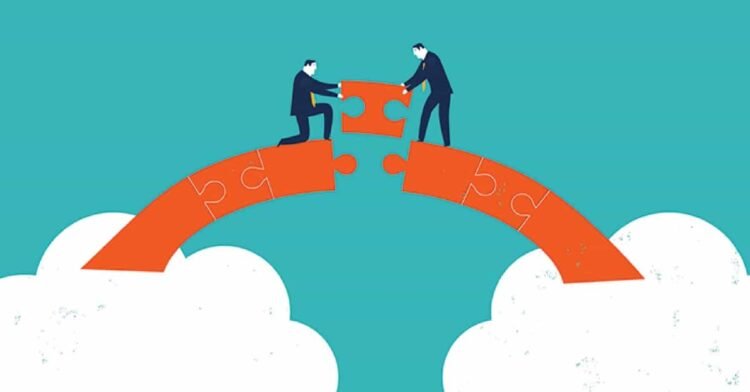Franchisers sell a defined, proven business format or method of operation, offering a product or service that has sold successfully. An independent business is based on both an untried idea and operation. Franchisees can often buy lower-cost goods and supplies through the franchiser, resulting from the group purchasing power of all the franchises. Franchising provides a uniform system of operation, so that consumers receive uniform quality, efficiently and cost-effectively. A uniform system brings with it the advantages of mass purchasing power, brand identification, and customer loyalty, capitalizing on the proven format. A franchiser also provides management assistance, including accounting procedures, personnel and facility management. An individual with experience in these areas may not be familiar with how to apply them in a new business. The franchiser helps a franchisee overcome this lack of experience. Franchisors help franchisees develop a business plan. Many elements of the plan are standard operating procedures Continue reading
International Business Strategies
Case Study of Zara: A Better Fashion Business Model
Zara is one of the most well known brands in the world and is also one of the largest international fashion companies. They are the third largest brand in the garment industry and are a unit of Inditex. It their flagship range of chain stores and are headquartered in Spain. Zara opened its first outlet in Spain in 1975. The headquarters of the company is based in Galicia. There are more than 2600 stores across 73 countries in the world. The Zara clothing line accounts for a huge bulk of its parent group’s revenues. There are other clothing brands owned by Inditex such as Kiddy ´s Class (children’s fashion), Pull and Bear (youth casual clothes), Massimo Dutti (quality and conventional fashion), Bershka (avant-garde clothing), Stradivarius (trendy garments for young woman), Oysho (undergarment chain) and Zara Home (household textiles). Inditex owns all Zara outlets except for places where they are not Continue reading
Business-Government Relationships – Meaning, Advantages, and Disadvantages
The success of any business around the world depends on a wide-range of factors, some of which may be from the internal or external business environment. For this reason, business owners and managers have no option but to try and understand the underlying factors, which are essential in defining the progress and future performance of the business. From the manner in which a firm treats its customers, to its relationship with internal stakeholders, it is necessary to underscore how various factors are generally intertwined in any business market. The question we ought to ask is the need for establishing a relationship with the government when running a business. The manner in which governments relate with the business world has remained debatable for several years, presenting two sides of a coin in which debaters view the advantages and demerits of enhancing such relationships in any setup. This is based on the fact Continue reading
Definition of Globalization – Stages of Globalization
A very commonly used term, globalization can mean different things to different people. At a broad level, globalization refers to the growing economic interdependence among countries, reflected in the increasing cross border flow of goods, services, capital and technical know how. At the level of a specific company, globalization refers to the degree to which competitive position is determined by the ability to leverage physical and intangible resources and market opportunities across countries. “Globalization refers to the multiplicity of linkages and interconnections between the states and societies that make up the present world system. It describes the process by which events, decisions, and activities in one part of the world come to have significant consequences for individuals and communities in quite distant parts of the globe. Globalization has two distinct phenomena: scope (or stretching) and intensity (or deepening). On the one hand, it defines a set of processes which embrace Continue reading
International Strategic Alliances – Motivation, Advantages, and Disadvantages
An alliance can be defined as a business to business collaboration. In an alliance two or more companies agree to work together to achieve a common goal while not losing their individuality. Strategic alliance helps the both parties to gain the complementary strengths. Companies form alliances for joint marketing, joint sales or distribution, joint production, design collaboration, technology licensing and research and development. Strategic alliances have different forms, Contractual (non-equity- based) alliances (Alliances which are based on contracts and which do not involve the sharing of equity), Equity-based alliances (Strategic alliances which involves the use of equity), Cross-shareholding (Both partners invest in each other). One form of Equity-based strategic alliances is the joint venture. The formation of the alliance is rich and fragmented. One of the main reasons behind the collaboration is to gain the competitive advantages. Intermediate asset specificity and low uncertainty are conditions that may lead to a preference Continue reading
Case Study: Wal-Mart’s Failure in Germany
Wal-Mart Stores, Inc. is the largest retailer in the world, the world’s second-largest company and the nation’s largest non-governmental employer. Wal-Mart Stores, Inc. operates retail stores in various retailing formats in all 50 states in the United States. The Company’s mass merchandising operations serve its customers primarily through the operation of three segments. The Wal-Mart Stores segment includes its discount stores, Supercenters, and Neighborhood Markets in the United States. The Sam’s club segment includes the warehouse membership clubs in the United States. The Company’s subsidiary, McLane Company, Inc. provides products and distribution services to retail industry and institutional foodservice customers. Wal-Mart serves customers and members more than 200 million times per week at more than 8,416 retail units under 53 different banners in 15 countries. With fiscal year 2010 sales of $405 billion, Wal-Mart employs more than 2.1 million associates worldwide. Nearly 75% of its stores are in the United Continue reading




